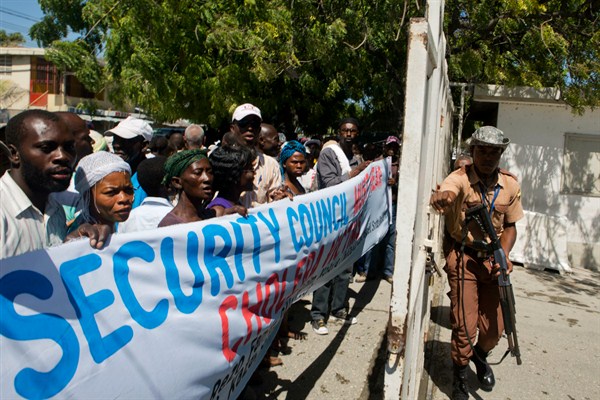In this week’s Trend Lines podcast, WPR’s editor-in-chief, Judah Grunstein, and senior editor, Frederick Deknatel, discuss Iraq’s prospects for reconstruction and reconciliation after the liberation of Mosul. For the Report, Jake Johnston talks with Peter Dörrie about the problematic legacy of the U.N.’s stabilization mission in Haiti, and why accountability for past errors is key to its future role in the country.
If you’d like to sign up for the beta version of WPR’s Africa-only subscription, you can do so here. It’s free for the first two months.
And if you like what you hear on Trend Lines, as well as what you’ve seen on WPR, please think about supporting our work by subscribing.
Listen:
Download: MP3
Subscribe: iTunes | RSS
Relevant Articles on WPR:
Trend Lines is produced and edited by Peter Dörrie, a freelance journalist and analyst focusing on security and resource politics in Africa. You can follow him on Twitter at @peterdoerrie.
Listeners of the Trend Lines podcast who would like to read more from World Politics Review can sign up for our free twice-weekly email newsletter here. To send feedback or questions, email us at podcast@worldpoliticsreview.com.

